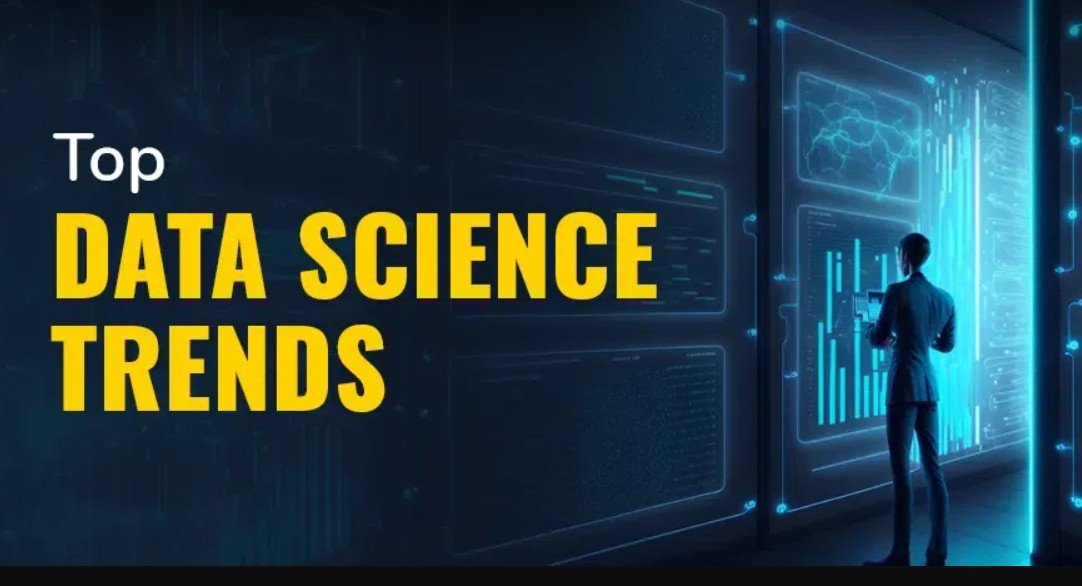Transformations in the data science domain are shaking up long-held ideas and opening up new ways to innovate. Data used to be a resource a few years ago. Now, it is the engine of new ideas. As we look at the top data science trends, we can see more clearly how professionals, businesses, and researchers change, grow, and succeed. Understanding these shifts gives you not only insight but also direction if you want to stay ahead as a data science expert.
Synthetic Data Goes from Being New to Being Necessary
Businesses are turning to synthetic data because human-sourced datasets are running out of space and availability. To train AI models in areas like self-driving cars and robotics, Nvidia, Google, and OpenAI are all building factories that make fake data. Elon Musk has said that AI developers have almost run out of original data made by humans and are now using synthetic sources to keep improving models.
A systematic review in the biomedical field by The Guardian found that synthetic data from large language models helps research while keeping people’s privacy safe through techniques like prompting and fine-tuning. This trend changes how data is collected, making sure that both scale and privacy are protected.
Agentic AI and Data Agents Are Getting More Popular
One of the most important data science trends to watch in 2025 is the rise of AI that acts on its own, also known as agentic AI. This year’s strategic talks in the MIT Sloan Management Review are all about agentic AI’s promise and hype, as shown by thought leaders like Thomas Davenport and Randy Bean. Parallel changes in LLM-based data agents are changing the way we do analysis. These smart assistants can plan, think, reflect, and do data tasks with very little help from people.
Automation and AI Make Complicated Pipelines Easier to Use
Data workflow automation is getting more and more advanced. Google Cloud just released six AI agents that can do everything from exploratory data analysis to feature engineering and predictive modeling. AI and machine learning are now used to power intelligent monitoring, real-time pipeline insights, and error detection across platforms like Snowflake, Databricks, and SAP Monte Carlo Data. These changes make things more accurate with less work on the part of the user, changing how things work.
Data Volume Surges, Spurring Innovation
The amount of data keeps growing at a mind-boggling rate. IDC says that by the end of 2025, the global Datasphere will have grown to 175 zettabytes. The Pittsburgh Institute of Technology states that daily generation rates are now 2.5 quintillion bytes, and they expect that 181 zettabytes of data will be produced by 2025. This explosion puts pressure on new ideas in storage, processing, and analytic design, which means that infrastructure needs to be able to grow, and priorities need to be set.
Augmented Analytics and Inclusivity Elevate Accessibility
Augmented analytics makes insights available to everyone by using machine learning and natural language processing. The method gives business users the power to do exploration, visualizations, and narration without needing a lot of technical knowledge. Recent studies by Cornell University also focus on fair and inclusive resource allocation in data science in 2025. They push for models and metrics that respect diversity, ethics, and sustainability.
The Profession Faces Pressure and Opportunity
According to a recent study by Microsoft Research, generative AI could automate many traditional data science tasks. Practitioners will need to adapt by learning new, complementary skills. However, the job market for data scientists is still strong. By 2025, the global data science market is expected to be worth about $178.5 billion. It will grow quickly, and there will be more than 220,000 jobs in the US alone. This dynamic shows that anyone who wants to do well needs to be flexible, keep learning, and plan ahead.
Why Do These Trends Matter?
- The ability to grow synthetic data and automation can help capabilities grow, even when new data from people doesn’t cut it.
- Smart agents and augmented analytics allow experts to focus on strategic insight instead of doing the same things over and over.
- Data science serves larger, more responsible purposes when it is explainable, private, and fairly designed.
- As automation becomes more common, you need to learn how to use new tools, think strategically, and follow ethical guidelines to stay relevant.
If you want to be a data science expert, you need to know about these changes. Formal preparation is just as important. Getting certified from reputable platforms like the United States Data Science Institute (USDSI®) is important because it gives professionals structured training that is in line with the industry and strengthens their knowledge of automation, ethics, and new technologies.
To Conclude
Data science has come a long way since its early days in 2025. Data science trends, such as synthetic data, agentic AI, automation, huge data growth, and ethical frameworks, are changing the way people think about the field and the work itself. Professionals, teams, and organizations face both problems and chances. People who are flexible, keep learning, and get certifications will not only keep up but also help shape what comes next.


